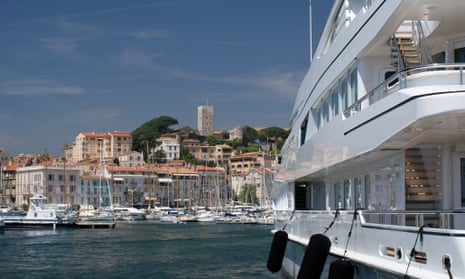Startups and innovation were high on the agenda at this year’s Cannes Lions. The importance of technology and new companies was particularly prominent at the newly created Lions Innovation festival that sat for two days alongside the traditional Cannes Lions festival. But what did we learn from having these new breed of companies out on the French Riviera with us this year?
Collaboration is key
The importance of collaboration was clearly highlighted at the festival. All companies in Cannes, large and small, are individually very interesting, but to really make something magical happen at the intersection of data, tech and creativity, they must come together, noted by a number of panels during the two days.
A great example is the partnership between Unilever and startup Glimr, which was in attendance at Cannes as part of Unilever’s Foundry 50 startup efforts. The startup’s iBeacon business recently partnered with the FMCG stock cube brand Knorr to launch the world’s first physical re-targeting campaign in Sweden, helping the giant bridge the gap between its customer’s online and offline behaviour.
It was also encouraging to see that Grey, the creative agency, had bagged itself a Cannes Lions Gold after collaborating with Swedish startup Albedo100 to produce LifePaint (a road safety, glow in the dark paint) specifically with its Volvo client in mind. Both partnerships are examples of how the scale and brand recognition of an established player, combined with the innovation generated by early stage companies can produce different and interesting work. A word of caution to startups however, be wary and pick the right partner. As Mondelēz International’s VP of global media and consumer engagement, Bonin Bough, put it, “don’t chase cash, chase value”.
This is now more than PR puff
Over the last couple of years, working with startups has been compared to teenage sex: everyone was talking about it but nobody was actually doing it. As Rose Lewis, co-founder at Collider put it, “innovation is not an event, brands and agencies have to be committed and put the right framework in place.” It was refreshing therefore to see large companies making a serious effort in this area, for example Unilever’s Foundry took 50 lucky startups out to pitch and speed date with the industry’s best, R/GA partnered with the festival to run a Start-up Academy giving 10 startups mentoring and guidance and TechCrunch hosted a pitch-off for startups on their very own yacht.
These initiatives therefore attracted a number of investors and venture capitalists creating a very different ecosystem compared to what’s been seen before, with some coining Lions Innovation as the European version of SxSW. While this part of the festival is still in its infancy, it certainly seems to be tackling innovation and startups head on. As it matures we’ll see more awards and work being recognised in this part of the festival as it plays a crucial role in shaping the future of advertising and media.
We have a responsibility to nurture
Brands need to understand that they have a responsibility to help scale future talent and provide that initial, crucial support. On an MEC hosted panel during the festival, BBC Worldwide’s commercial director for bbc.com, Tristan Leaver, highlighted how important and rewarding it is for an established business like the BBC to support the startups that it’s trying to work with. By helping early-stage companies to navigate the business, guide them through commercial terms and help determine success metrics, the work created will be far more effective and long lasting. On the same panel, both entrepreneurs from startups Seenit and Rezonence called for more honesty from the agencies and brands. Simply saying “no we’re not interested in your product because…” was noted as being far more useful than someone just ignoring emails or nodding politely.
Startups are time and resource poor and we can really help guide their business by giving honest and constructive feedback. We work with startups for a reason, they are agile, risk taking and at the forefront of innovation but a little rough around the edges – it’s our job as industry veterans to help iron out the kinks to help both parties reap the benefits from future innovation.
Overall, a really impressive effort from the Lions Innovation team. As the festival progresses it would be good to see other brands who don’t already play big in the startup space getting stuck in. We want more award submissions with an innovation focus and ultimately a convergence between the two festivals so that collaboration between innovation, data and creativity is truly realised. Bring on next year.
To get weekly news analysis, job alerts and event notifications direct to your inbox, sign up free for Media & Tech Network membership.
All Guardian Media & Tech Network content is editorially independent except for pieces labelled “Brought to you by” – find out more here.
